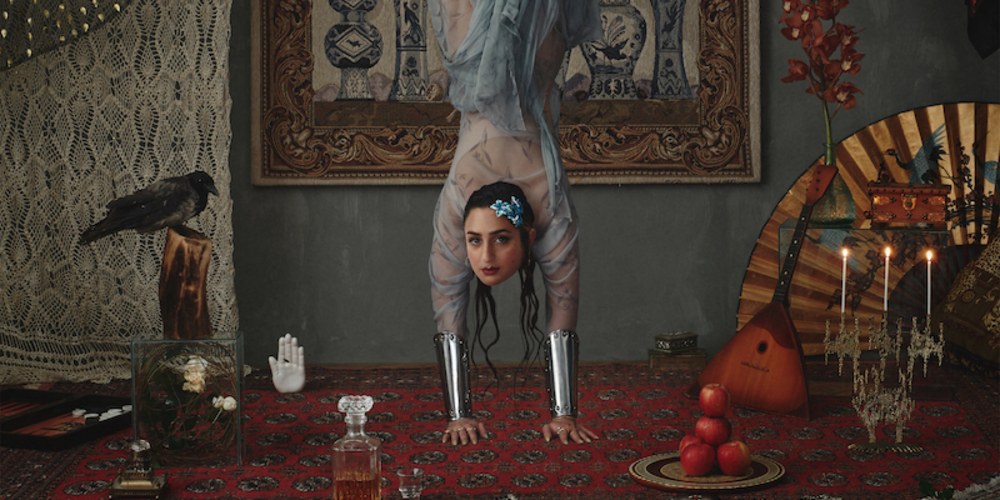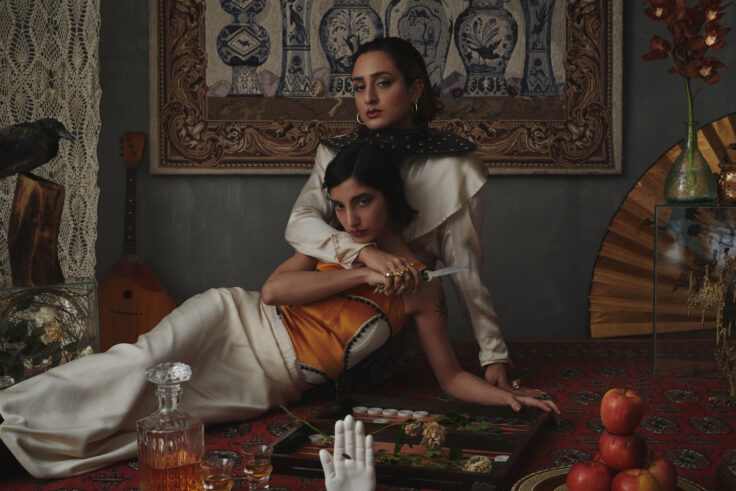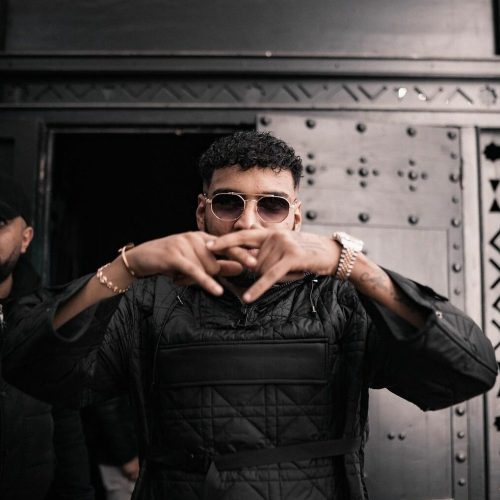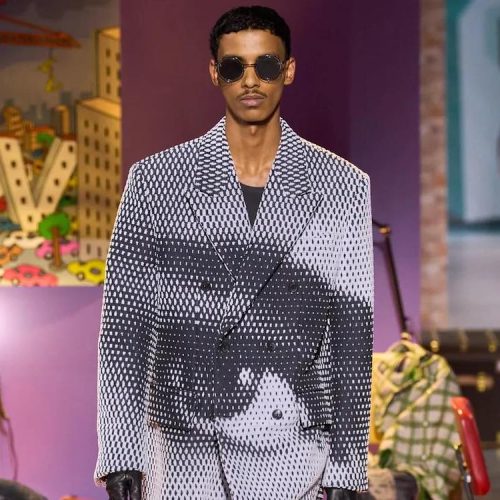Since avant-garde Arab musicians like Soapkills, Lena Chamamyan and Tania Saleh stormed the underground scene in the early 2000s, Arab pop has burgeoned in both synth and sensuality.
This is most evident in emerging talent Nadia Tehran, a Swedish-Iranian artist mixing pop with politics. Nadia Tehran’s first studio album Dozakh: All Lovers Hell is a testimony to this. A continuation of her 2016 EP Life is Cheap, Death is Free, Tehran digs deeper into electronic music but carries on her signature dark sound, heavy with meaning and feeling. Aside from the trippy cover art of Tehran doing a handstand amidst a still-life harem, tracks like Dreamers show that dabke is not the only dance music the Arab world has to offer. The musical love child of M.I.A and Connan Mockasin, Tehran’s album has a slow beat with searing vocals, playing against rhythms of both the Persian and English language.
Aside from the trippy cover art of Tehran doing a handstand amidst a still-life harem, tracks like Dreamers show that dabke is not the only dance music the Arab world has to offer. The musical love child of M.I.A and Connan Mockasin, Tehran’s album has a slow beat with searing vocals, playing against rhythms of both the Persian and English language.
Although soothing in its easy-listening glory, the darkness goes beyond the album’s title Dozakh, meaning ‘hell’ in Persian. The opening track starts with the voice of her father Ali Karder describing how, due to his experience as a soldier in the Iran-Iraqi war, he’s not afraid of death. “I wake up with unbelievable pain that isn’t just pain from my legs, it’s pain through my whole soul,” he recounts in Swedish. “I didn’t even realise that my leg was gone.” Tehran defies genre, as her easy-listening style scuffs lyrics closer to the more difficult experiences of the Middle Eastern region.
A compendium of longing, Tehran’s music shows us the underbelly of exilic pop, rife with desire for a world without war.









